Tax Incentives for High-Rise Developments: A New Era for El Salvador’s Skyline
ELE Consulting - Legal Team
6/22/20255 min leer


El Salvador continues to capture the attention of international investors with bold and pragmatic economic policies. In recent years, the country has positioned itself as an emerging destination for innovation and investment. In 2021, in an effort to boost financial inclusion, job creation and facilitate remittances, El Salvador took a different path toward digital payments becoming the first country to adopt Bitcoin as a legal tender. In January 2025, the Salvadorean Congress agreed to remove Bitcoin’s legal tender status, ensuring that the government and businesses would no longer be required to accept it. However, Bitcoin remains legal for private trade, and the government has continued purchasing it, signaling an ongoing interest in cryptocurrency despite the policy change.
On 12 March 2024, the Legislative Assembly approved an initiative to reform the Income Tax Law that excludes from the concept of income any passive income that entities and individuals in El Salvador receive from foreign sources. This change in the law means that dividends, capital gains and interest, among other income, from securities and financial instruments abroad would not be subject to Income Tax in El Salvador.
Now, a new chapter is unfolding, this time in the real estate sector. With the enactment of Legislative Decree No. 95, which entered into force on October 1, 2024, the Salvadoran government has introduced an attractive package of tax incentives for the development of high-rise real estate projects.
The goal is clear: to modernize El Salvador’s skyline, foster vertical urban growth, and attract a new wave of foreign investment.
This article explores the legal and economic framework of this new incentive regime and offers practical considerations for investors evaluating the Salvadoran real estate market.
The Legal Framework: Legislative Decree No. 95
Legislative Decree No. 95, formally known as “Special Provisions for the Promotion and Granting of Tax Incentives for the Development of High-Rise Real Estate Projects”, was passed by the Legislative Assembly as part of a broader strategy to stimulate construction and investment.
At its core, the decree grants a generous 15 year exemption from Income Tax (ISR) and Capital Gains Tax to individuals, legal entities and associations of individuals, domiciled or not in the national territory, who are holders or owners of new investments in construction projects or construction of high-rise real estate developments, with 35 or more floors, measured from street level.
The incentive applies to a wide range of activities linked to the project’s lifecycle:
Construction of the building.
First sale of the building or its units.
Rental of units for commercial, tourism, or service purposes.
Provision of hospitality services within the building.
One of the most notable features of the regime is its inclusive scope: both Salvadoran and foreign investors, whether domiciled in the country or not, may benefit. The exemption is, however, exclusive to the initial investors who carry out the project, not to subsequent acquirers of units or spaces.
For foreign investors, this clarity is a key advantage: it ensures predictability and allows long term project planning.
Application Process: Simplicity and Speed
Investors must submit a formal application to the General Directorate of Internal Taxes (DGII) within the Ministry of Finance before starting construction. The law mandates the DGII to issue its response within ten business days, streamlining what could otherwise be a complex approval process.
In practice, this efficient procedure reflects the government’s stated intention to reduce red tape and foster a business friendly environment, a philosophy that underpins many of the country’s recent reforms.
Why High-Rise, and Why Now?
It is worth reflecting on why the Salvadorean government has chosen to focus its incentives on high-rise developments, and why these matters to investors.
Urban Revitalization and Density
El Salvador’s main urban centers, especially San Salvador and its metropolitan area — face increasing land scarcity and congestion. Encouraging vertical development is a rational and sustainable response, promoting more efficient land use and supporting the creation of modern mixed use environments.
Attracting Foreign Investment
The government explicitly aims to position El Salvador as an attractive hub for real estate capital from abroad. According to projections, the policy could attract up to $7.8 billion USD in investment, supporting not only construction but also architecture, engineering, and professional services.
Job Creation
The construction sector already contributes significantly to El Salvador’s economy, representing approximately 12.5% of GDP and generating over 200,000 direct jobs. Vertical projects will deepen this impact while fostering innovation in sustainable design and construction methods.
Regional Context and Comparative Advantages
In a region where countries increasingly compete to attract foreign investment, El Salvador’s incentive regime stands out.
Few Central American jurisdictions currently offer a package as clear and generous as El Salvador’s new high-rise tax exemption. The combination of:
15 year tax holiday on income and capital gains.
A territorial tax system exempting foreign sourced income.
Legal stability contracts available to major investors; and
Full freedom to repatriate capital and profits creates a compelling value proposition.
When viewed alongside other reforms such as the recent simplification of company registration and the push toward digital public services the country’s message to investors is unmistakable: “El Salvador is open for business.”
Practical Considerations for Investors
While the incentives are attractive, they must be approached with appropriate diligence. To that end, investors should consider:
Municipal Regulations and Zoning
While Decree No. 95 operates at the national level, high-rise projects must still comply with municipal urban planning and zoning ordinances. Local regulations may impose limits on height, density, or usage, particularly in historical or protected areas.
Environmental Permits
A comprehensive Environmental Impact Assessment (EIA) is mandatory for large construction projects. Investors should budget adequate time and resources for this phase to avoid unexpected delays. Moreover, developers must now engage with the recently created Dirección de Ordenamiento Territorial y Construcción (DOT), the new central authority responsible for overseeing construction projects and urban planning in El Salvador. The DOT will play a critical role in evaluating and approving urban development proposals, including high-rise projects, ensuring compliance not only with environmental requirements but also with urban coherence and public infrastructure standards.
Infrastructure Readiness
High-rise buildings demand robust public infrastructure: water, sewage, electricity, and transportation. While the government is investing in urban upgrades, investors should conduct thorough due diligence on infrastructure capacity in their chosen location. The legal framework, while increasingly modern, requires sophisticated local counsel to navigate effectively, especially in areas such as tax law, municipal permits, and corporate structuring. Moreover, the accelerated push for vertical development will likely create pressure to update other related legal instruments, many of which remain outdated. For instance, the current Ley de Propiedad Inmobiliaria de Pisos y Apartamentos (Law on the Ownership of Floors and Apartments), though applicable, was not designed with modern high-rise projects or large scale vertical condominiums in mind. Additionally, the emergence of new residential and mixed use models, such as short term rental platforms (Airbnb and similar), is taking place in a legal vacuum, as El Salvador currently lacks a comprehensive regulatory framework for such uses. As high-rise developments expand, addressing these gaps will become essential to ensure legal certainty for investors, developers, operators, and residents alike. Forward thinking investors who engage proactively in these regulatory conversations, and anticipate forthcoming adjustments, will be well positioned to shape and benefit from a more modern, business friendly legal environment.
Legislative Decree No. 95 represents a bold and timely initiative. It reflects a maturing vision of El Salvador’s future; one where modern vertical development plays a central role in shaping the country’s economic and urban evolution. For foreign investors and forward looking developers, this is an opportunity not to be overlooked.
Success will depend on sound legal advice, rigorous due diligence, and a strategic approach to market positioning. But beyond that, those who actively engage with regulators, industry groups, and legal professionals to help modernize the broader regulatory framework from condominium laws to the treatment of new residential and hospitality models — will not only mitigate risk but also help shape an ecosystem that is better suited for sustainable, long term investment.
The skyline of San Salvador, and perhaps of other Salvadoran cities, is about to change. Now is the time for investors to help define how that transformation takes place. At ELE Consulting, we provide the legal and strategic guidance necessary to navigate this evolving landscape with confidence. Whether you're entering the real estate market, structuring investment vehicles, or evaluating regulatory risk, our team is ready to support your next move. Contact us at contact@ele-consulting.com to begin the conversation.

